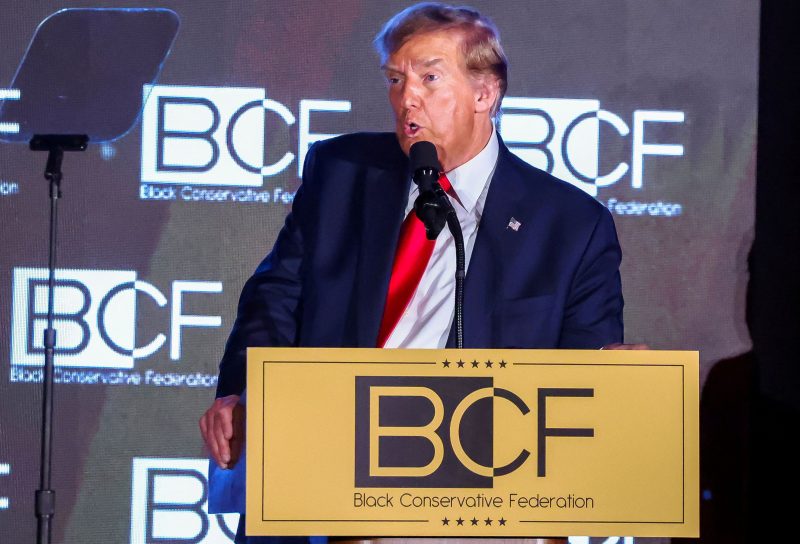In exploring the assertion made by former President Trump about his relationships and work with the black community, it is essential to consider the context and experiences that shed light on the dynamics involved. Trump’s claim of having worked hand in hand with black people for many years presents a complex narrative that warrants a critical examination. While it is important to acknowledge any positive contributions or interactions between Trump and the black community, it is equally crucial to scrutinize the broader implications and historical record of his statements and actions towards marginalized groups.
One of the central themes that emerge when evaluating Trump’s relationship with the black community is the notion of authenticity and sincerity. Critics argue that Trump’s statements often seem opportunistic, especially when political expediency or public perception comes into play. His track record of racially charged remarks, such as the controversial response to the white supremacist rally in Charlottesville, raises concerns about the consistency of his purported commitment to working alongside black individuals. Additionally, Trump’s policies, such as the Muslim travel ban and aggressive immigration enforcement, have sparked widespread backlash from civil rights advocates and minority communities, further complicating his claims of inclusivity and collaboration.
Furthermore, the impact of Trump’s rhetoric and policies on racial tensions and social divisions cannot be overlooked. The rise in hate crimes, discriminatory practices, and racial polarization during his presidency underscores the deep-seated challenges facing marginalized communities in the United States. While it is essential to acknowledge the diversity of perspectives within the black community regarding Trump’s tenure, it is crucial to amplify voices that critique systemic inequalities and advocate for justice and equity.
In contrast, supporters of Trump point to specific initiatives, such as criminal justice reform and economic empowerment programs, as evidence of his engagement with black audiences. The First Step Act, which aimed to address disparities in sentencing and incarceration rates, received bipartisan support and was praised for its potential to create positive change within the criminal justice system. Additionally, Trump’s emphasis on economic growth and job creation resonated with some black voters who viewed his policies as beneficial to their communities.
Ultimately, the question of whether Trump genuinely collaborated with the black community or used it as a political tool is multifaceted and subjective. While some may highlight instances of cooperation and dialogue, others may focus on the broader implications of his rhetoric and policy decisions. As the conversation evolves, it is crucial to critically analyze the complexities of power dynamics, privilege, and structural inequalities that shape interactions between political leaders and marginalized groups.
In conclusion, the assertion made by former President Trump regarding his purported collaborations with the black community raises important considerations about authenticity, impact, and systemic inequities. By examining the nuances of his relationships and policies, we can gain a deeper understanding of the complexities involved in navigating race relations and social justice in contemporary America.
